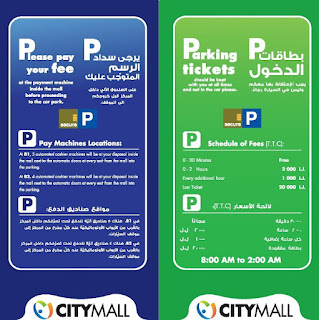Advertising tends to focus on one of our needs; not to satisfy it, but to imbed the thought in our heads that the said product would solve your problem and bring about your satisfaction.
Let's play a game. Here is Maslow's hierarchy of needs:
Mix and match: Where do those recent ads fit?
- Coffee Mate: Got the coffee, get the mate.
- Snickers: eza darabak el jou3 drobo bi Snickers.
- Nissan: I am funky, and I know it.
- Trident: The flavor you can't get rid of.
- Lancome: Rouge in love.
- Gardenia: Eat safe.
- Clorets: al thika bil nafes.
OK, you got the point.
No one would acknowledge that, yes, I will buy Clorets, because, well, I think it will give me more self-confidence. This isn't quite how this works; so how can we say that the ad was about persuasion?
What is advertising, and how does it work?
According to the marketing giant Philip Kotler: "Advertising is any paid form of non-personal presentation and promotion of ideas, goods and services through mass media such as newspapers, magazines, television or radio by an identified sponsor".
'I know that!' you will retort.
Let's dig deeper together. Advertising is, theoretically, a simple 'presentation', that just happens to be 'paid'. Certainly, it has a money-generating purpose. So how does a mere 'presentation' of products affect your purchasing behavior and translate into a profit-making machine, currently known as advertising.
There are three stated purposes in advertising campaigns:
1- To inform: creating awareness to a yet unknown product, introducing new specifications for an existing one.. That's what 'informing' is about, right? In the advertising world, this does not quite cut it. It is not about giving out information that will help you make your purchasing decisions. It is about highlighting the points that might affect you positively and down sizing the effect of the rest.
2- To persuade: It is about presenting that idea from a point of view that will matter, through a story or a character that can speak to your heart. It is about convincing you, through fake testimonials, or authorities and celebrities who are just playing along for the money.
3- To remind: To keep the brand name in your top of mind recall, which has proven to increase the probability the brand will get sales. The more familiar the brand, the more likable it becomes. The more you gain a penchant to try it.
Recently, I was reading a book called 'Buy.ology' by Martin Lindstrom. Basically, it sums up his research on neuromarketing (measuring changes in activity in the brain through MRI tests of people being subjected to ads).
Here's what you need to know:
Product placement that fits within the setting of the story line or play a significant role works better.
In a study conducted on American Idol, Lindstrom concludes that Ford had thrown 26 million dollars out of the window by sponsoring the show. Not only did it fail to increase its brand recall, the ads inhibited this recall, as the viewers resisted being subjected to what they obviously identified as advertising.
Whereas, Coca-Cola who had smartly integrated its product, colors and shapes into the show, got a great response. Thus, covert advertising works better than obvious ones; which really begs the question: Persuasion or manipulation?
In Los Angeles, Lindstrom tested two outdoor ads, the first featured cowboys with no logo or brand, while the second, displayed the same image with the Marlboro brand. The research results showed that the first ad (with no brand) worked twice better at stimulating cigarette craving; the future of advertising?
Among the lesser known advertising efforts, the use of the senses to ignite a 'want'. For new cars, the smell of leather comes from a spray can; the same goes for fast-food chains like Mc Donald's, the delicious mouth-watering smell of bacon and cheese? From a can too. The fast paced music in shops like Mango during sales? It is intended to make you shop quickly, and linger less.
Oh wait, was that them persuading you?
















